This resource page is designed to answer common questions about the Unica Anterior and Unica Proximal Anterior matrices, helping you maximize efficiency and achieve predictable results in your anterior restorations. We will continue to update this page based on feedback from clinicians participating in the Unica field test.
Please email your suggestions to jmaglin@garrisondental.com.
Unica Matrices Overview
Unica matrices are designed to simplify and streamline anterior restorations by combining anatomical contouring with easy placement and reliable stability. Their unique shapes adapt naturally to the tooth, helping clinicians efficiently restore both function and esthetics. With Unica, it is easier to achieve natural tooth form, establish predictable contact points, and manage cervical and proximal margins with confidence.
By reducing the need for extensive manual shaping and adjustments, Unica matrices save valuable chair time while improving consistency across restorations. Whether for routine Class III and IV cases, cosmetic reshaping, or more advanced esthetic procedures, the Unica system provides a practical, time-saving solution that enhances workflow and clinical outcomes.
The Unica System includes two different matrices designs, the Unica Anterior and the Unica Proximal. The Unica Anterior matrix adapts to both cervical and proximal margins, making it ideal for anterior restorations that involve the gingival area (Class III, IV, V, veneers). In contrast, the Unica Proximal focuses only on interproximal surfaces when the cervical margin is not affected, offering easier handling, better access, and clear visibility for contact point reconstruction and esthetic reshaping.
Unica Anterior
Unica Anterior is a contoured matrix system designed to simplify Class III, IV, and V restorations by allowing simultaneous restoration of proximal and cervical margins with predictable esthetic results.
Choose Unica according to its shape and the tooth to be restored:
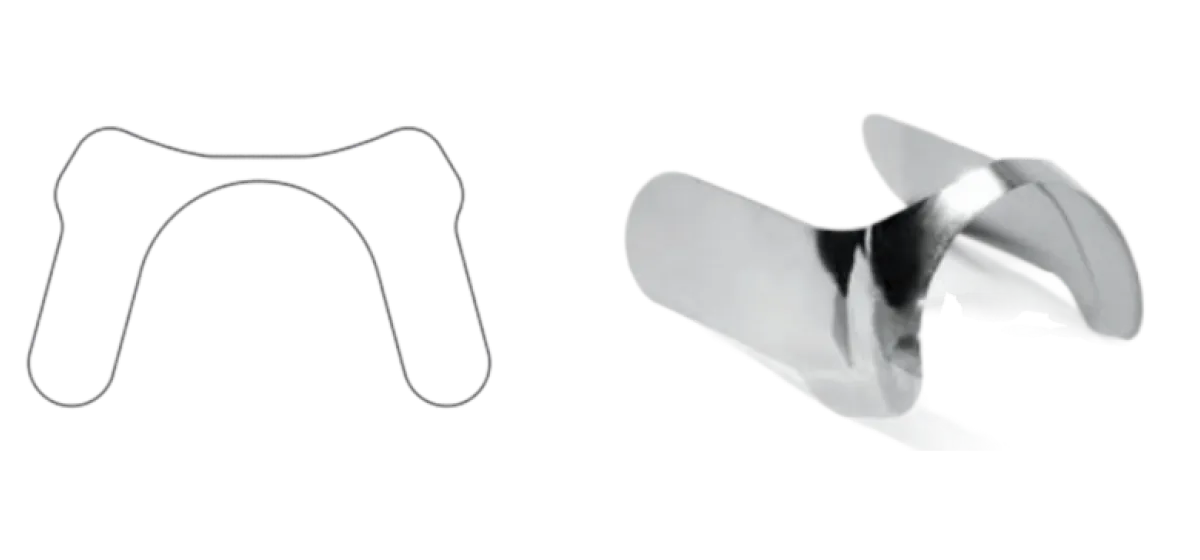
Unica Anterior
- maxillary central incisors
- maxillary lateral incisors
- canine teeth
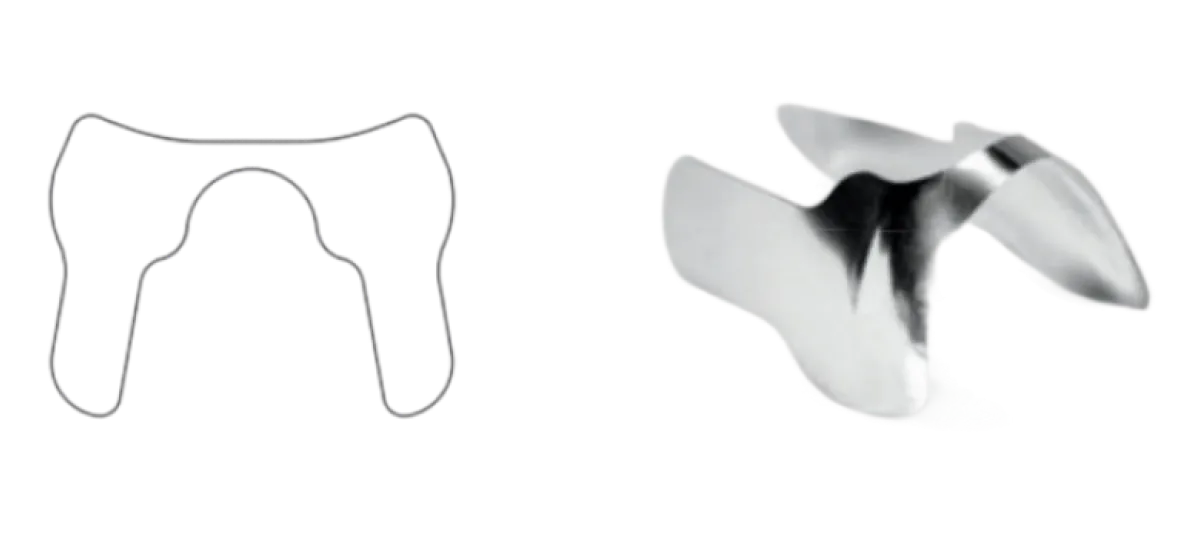
Unica Minideep Anterior
- maxillary and mandibular laterals
- mandibular central incisors
- conoid teeth
- triangular teeth
- peg laterals
Clinical Application
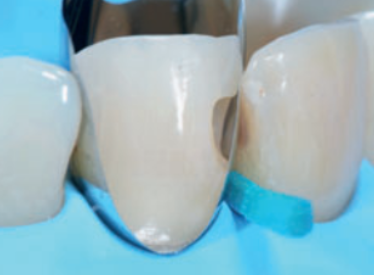
|
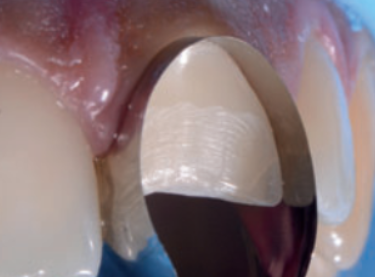
|
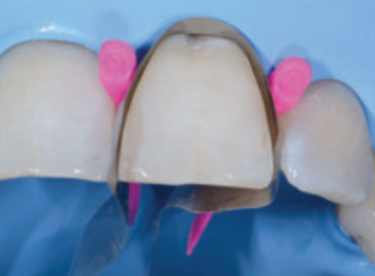
|
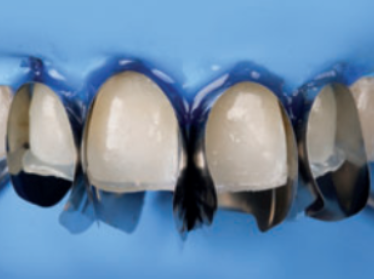
|
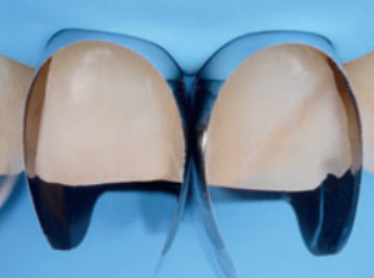
|
| Class III cavity restorations | Class IV cavity restorations | Class V cavity restorations | Shape modifications | Direct stratification composite veneers |
How to Position Unica Anterior
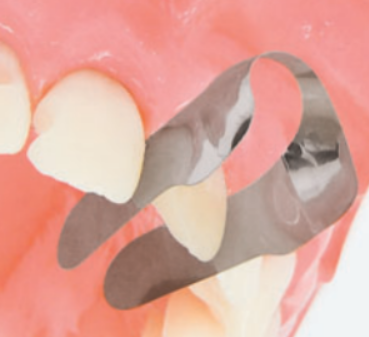
|
| Step 1. Insert Unica with wings; for tight contacts, place one wing at a time |
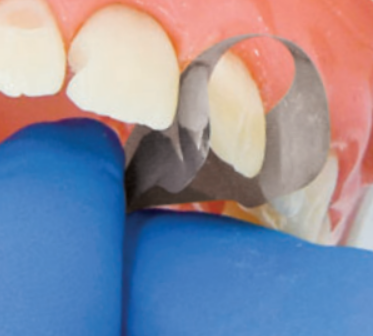
|
| Step 2. Gently pull the matrix palatally by its placement wings |
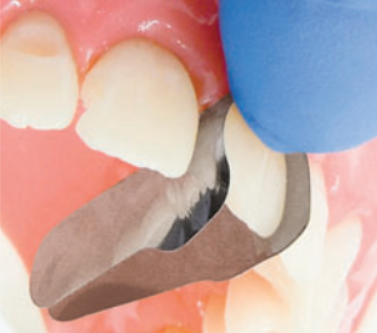
|
| Step 3. Push the cervical connection into the gingival sulcus |
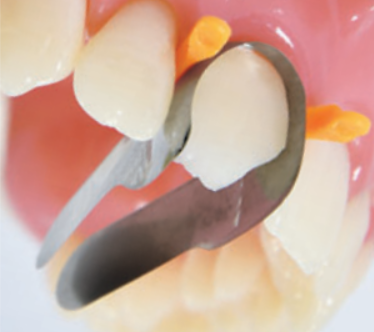
|
| Step 4. Insert a myWedge to fix the matrix in position |
Unica Anterior Videos
3D video - Unica
Anterior direct composite restoration performed by Dr. Manauta
Direct composite veneers with layering technique
Unica Anterior: the one solution to anterior restorations
Unica Anterior Cases
Unica frame as key to success in direct veneering
by Dr Osama Shaalan
(From the StyleItaliano website)
The Lower Anteriors Challenge
by Dr Valentin Vervack
(From the StyleItaliano website)
Monoshade composite bonding
by Dr Marcin Krupinski
(From the StyleItaliano website)
Achieving Aesthetic Symmetry in Multiple Diastema Closure
by Dr Marcin Krupinski
(From the StyleItaliano website)
Unica Proximal
Unica Proximal is a thin, anatomically shaped matrix designed for anterior restorations involving the proximal walls, providing stability, visibility, and reliable contact points.
Choose Unica Proximal for anterior restorations involving the proximal walls.
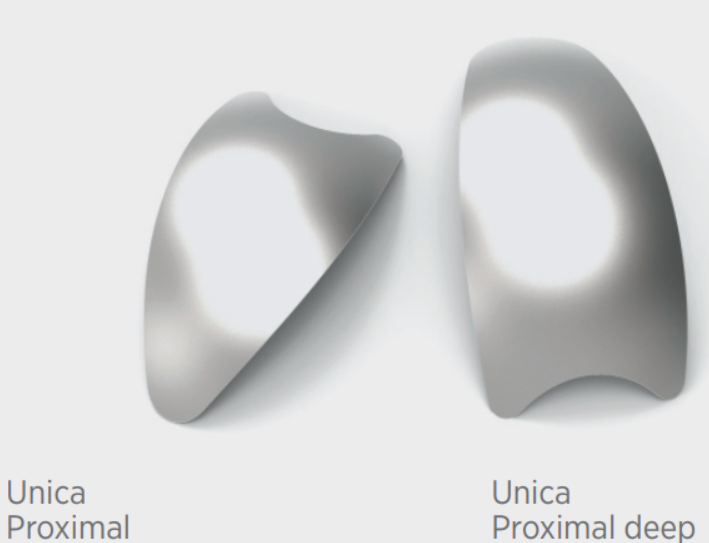
Clinical Applications
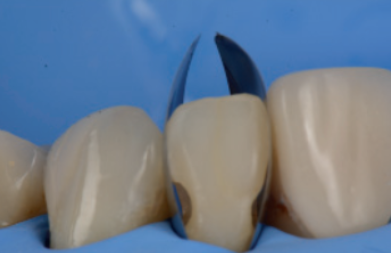
|
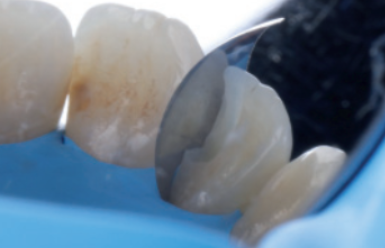
|
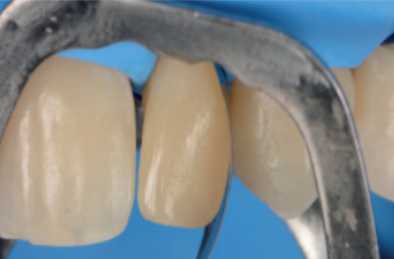
|
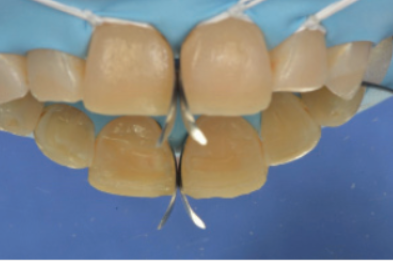
|
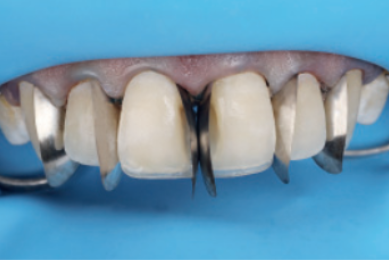
|
| Class III cavity restorations | Class IV cavity restorations | Shape modification of a peg lateral | Diastema closure | Direct stratification composite veneers |
How to Position Unica Proximal
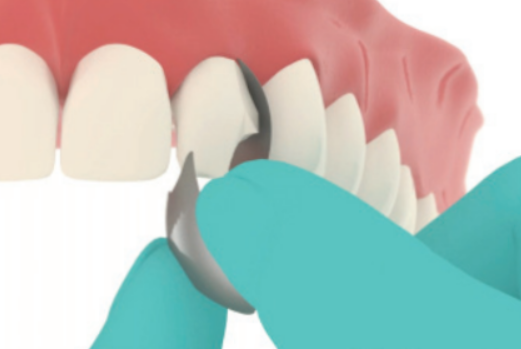
|
| Step 1. Select the matrix and gently slide it interproximally |
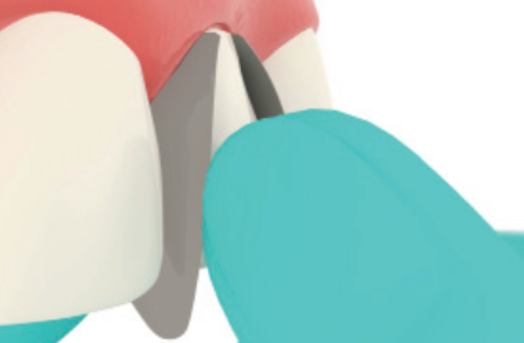
|
| Step 2. Secure the matrix between the papilla and the tooth subgingivally |
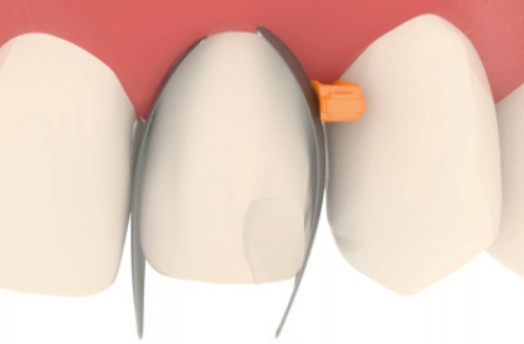
|
| Step 3. The use of an interproximal wedge to fix the matrix in position is allowed but not mandatory |
Unica Proximal Videos
3D video - Unica Proximal
The easiest way to close the diastema using proximal unica matrix with composite bonding
Unica Proximal Cases
Composite veneers using Unica Proximal
by Dr Ahmed Hussain
Class IV restoration on a lateral incisor using Unica Proximal
by Dr. Mohammed Al Hasani
Diastema restorationand direct stratification composite veneers
by Dr Osama Shaalan
